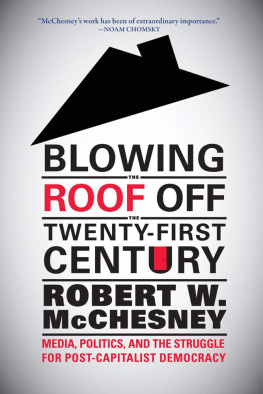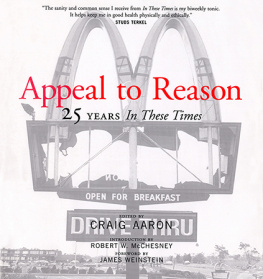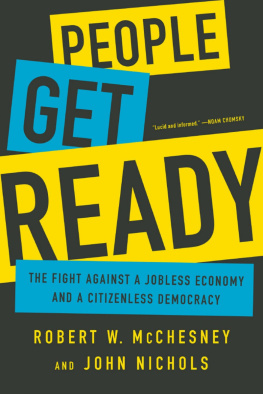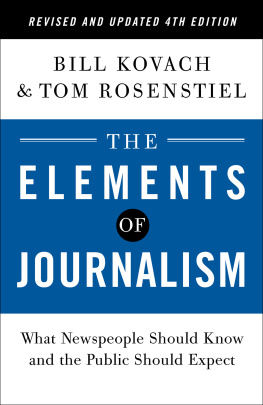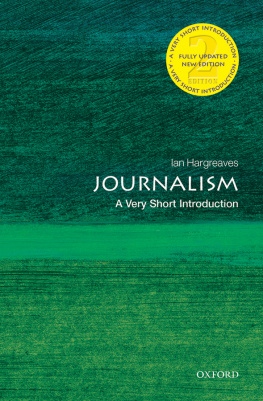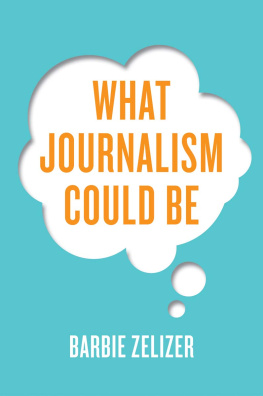INTRODUCTION
American journalism is in an existential crisis. Over the past generation, and especially in the past decade, the resources invested in reporting the news have declined precipitously. The basis for self-government is an informed citizenry, and as the Fourth Estate is the institution with primary responsibility for making an informed citizenry possible, the existential crisis for news media is, in fact, an existential crisis for self-government. For our constitutional system to succeed, the Supreme Court has noted, it is imperative to have a strong and independent free press. It is impossible to conceive of effective governance and the rule of lawnot to mention individual freedoms, social justice, and effective and enlightened solutions to daunting problemswithout a credible system of journalism.
In short, just about everything rides on how the crisis in journalism plays out.
Although the crisis has been developing for decades, and is rooted in long-term structural and technological factors, it flew underneath the radar until the bottom finally came out of the cup around 2007 with the Great Recession. In the past year or two, several new books have addressed the crisis, including The Death and Life of American Journalism, which one of us co-authored. In combination, these books have provided a good basis for understanding the crisis and have posited plausible solutions.
At the same time, the crisis is unfurling at breakneck speed, and words written in 2008 and 2009 already seem dated by 2011 or 2012.
Two points are clear, and they were the motive force for this book.
First, we are in a critical juncture for journalism and our media system. The existing news media system is in collapse, and something is going to replace it. Core political decisionswhat we do and do not doover the next few years will go a long way toward setting up what will serve as our news media of the coming era, possibly for generations. During a critical juncture, the range of political alternatives is much larger than is usually the case, and the stakes are much higher than during normal political times. We have the power to remake the world. Or, because the world is being remade dramatically regardless of what we do, it is better to say we have the power to shape how the world is going to be remade. It is a power we most definitely need to use, and use wisely.
Second, scores of outstanding journalists, scholars, and activists are now addressing the crisis from a variety of perspectives and providing fresh research and insights. It became clear by 2010 that much original, diverse, and often exceptional work was being produced to address the crisis in journalism, and it deserved greater attention than it was receiving. Some of this work touches on rich historical traditions concerning the press in the United States that have been forgotten and need to be reexamined in light of the present moment. The goal for this book is to collect the very best of this work in an accessible essay format and give the people of the United States a useful resource to increase the likelihood, we hope, that they make wise decisions during this critical juncture.
Over the course of the past three years, a handful of central issues concerning the crisis has crystallized and is increasingly defining the terms of the debate. How much of the current crisis is due to digital technologies, and how much is due to the corporate structure of the news media system as it has evolved over the past generation? Can the market and the Internet eventually evolve together to create a new commercially viable news media, and if so, what would this new system look like? Is there going to be a new type of digital journalism, largely based on volunteer or poorly paid labor and/or philanthropic contributions that can solve the problem for us in previously unimaginable ways?
For all of these questions, there has been a decided shift over the past three years toward a skepticism about whether the Internet and the market will combine to solve the crisis in journalism. The empirical data is moving in a different direction. The notion that all we citizens need to do is sit back and relax and let the free market and digital technologies work their magic is increasingly unconvincing.
Accordingly, the single most important issue that has emerged from the disintegration of the news media is what role the government should play in addressing the issue. In 2007, Bree Nordensons groundbreaking article in the Columbia Journalism Review, The Uncle Sam Solution, served as a prescient alarm bell that a systemic fix for the press was desperately needed, and government would need to play a central role.
By 2011 a very different picture emerged. A bellwether of this shift was renowned First Amendment scholar Lee C. Bollingers book Uninhibited, Robust, and Wide-Open, which called for a massive increase in public spending to support journalism and a supercharged public broadcasting system. Coming from Bollingera member of the Washington Post Company board of directors, the president of Columbia University, and as establishment a figure as one could hope to findthis was a sign that the times they most certainly are a-changin.
Among scholars, there is a growing recognition that the government has always played a central role in the formation and support of the news media system. It is deeply enmeshed in the workings of our news media system today, and most of our corporate media powerhouses were built upon government-granted monopoly licenses to airwaves or cable and telephone franchises. The issue for study and debate today is not whether the government should have a role, but what role it will play. Even the free market think tanks in Washington often want the government to relax antitrust standards, lower or eliminate corporate taxes, lessen the rights of workers, continue indirect subsidies and monopoly licensing, and permit greater commercialism and market concentration. Even those most enthusiastic about the democratic potential of digital technologies for journalism understand that core government policies, like network neutrality and ending the digital divide, are mandatory for the Internet to play such a role. Rhetoric aside, the government is at the center of any discussion of how this most fundamental public policy issue will be addressed, even for those who believe in a commercial or technological solution.
These are the issues the essays in this book address. The range of viewpoints and proposals contained here defies simple categorization. What unites all of the contributors is an understanding that we do not have the luxury of name-calling or a propagandistic disregard for evidence that conflicts with our arguments. As A.J.P. Taylor famously put it, we need to be scholars, not lawyers. We need an honest and earnest attempt to come together, despite our political differences. We must understand that whatever our values, if we fail to have a credible system of journalism, the future for all of us will be very grim indeed. We are in this boat together.
One contributor to this volume deserves special mention. C. Edwin Baker was the leading authority on freedom of the press and the First Amendment in his career at the University of Pennsylvania Law School. Bakers imaginative, meticulous, and pioneering books provided the foundation for our own understanding of the First Amendment and freedom of the press. Ed courageously advanced the constitutional case that the market alone could not be expected to adequately support the communication needs of a democratic society. A generous, thoughtful, and modest man, Ed provided personal counsel to each of us on the body of our research and the essays we wrote for this volume. He prodded us and challenged us, never accepting any claims at face value.


